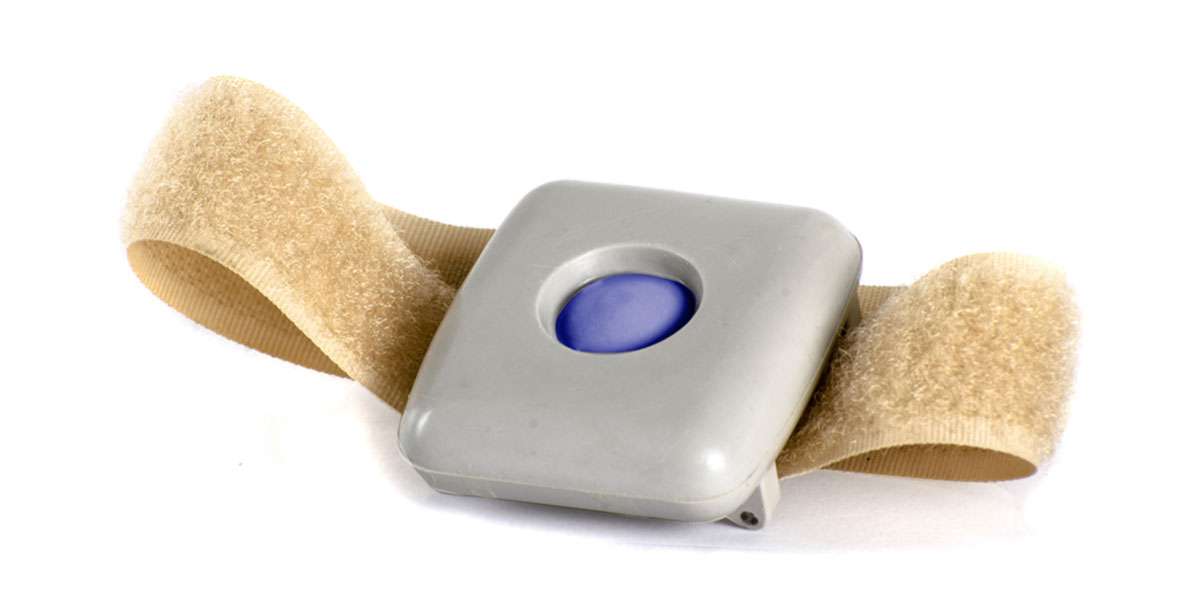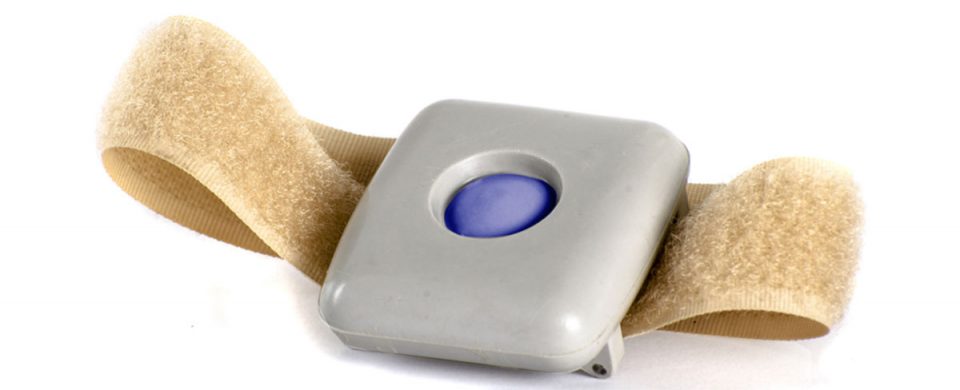
2024 Best Medical Alert Systems in Quebec

If a loved one has medical conditions or mobility issues, or if you need extra help in looking after a relative, a medical alert system can go a long way to giving you peace of mind and convenience.
It is simply impossible to care for a loved one 24/7 but a medical alert system can make a huge difference when an emergency happens. A life-altering incident such as a fall can have substantially different outcomes when no rapid response is received. A senior can be injured and lie waiting for hours, even days, without receiving medical help. Nobody has to be in this kind of situation.
Thanks to medical alert systems, seniors aged 65 and older will never need to worry about getting help when there is an emergency. Seniors and persons with disabilities in Quebec can now continue to enjoy independence without worrying about their safety!
By pushing a panic button worn as a necklace or wristband, the user is immediately connected to a monitoring center. Trained professionals assess the situation and dispatch emergency services as needed.
According to Statistics Canada, falls remain the leading cause of hospitalization for seniors and result in injuries or death. With 20% to 30% of Canadian seniors falling each year, it is reassuring to know that HELP will come after a fall or an accident.
Feel safe and continue to live independently with a medical alert system with fall detection and other safety features.
Compare free and no obligation quotes today by filling out the short form on this page!
What is a medical alert system and how does it work?
A medical alert system is a wearable security device that provides access to 24/7 emergency assistance.
In this way, a senior or a person with a disability does not need to get to a phone to call 911. This is especially useful because there are times when you won’t have a smartphone with you or you can’t dial the phone because you are injured or hurt. With an emergency panic button around your neck or wrist, you just need to press the button to call for help.
If a loved one has medical conditions or mobility issues, or if you need extra help in looking after a relative, a medical alert system can go a long way to giving you peace of mind and convenience.
It is simply impossible to be with a senior 24/7 but a medical alert system can make a huge difference when an emergency happens. A life-altering incident such as a fall can have substantially different outcomes when no rapid response is received. A senior can be injured and lie waiting for hours, even days, without receiving medical help.
A medical alert system can ensure that seniors receive help when they need it and reduce the burden and anxiety for their families.
Below are important features provided by medical alert systems.
Waterproof or water-resistant panic pendants
Emergency panic buttons, necklace or wristband, are worn at all times. The best ones are waterproof or water-resistant, making it possible to wear them even in the bathroom. This is important because falls commonly occur in the bathroom. By wearing your emergency panic button wherever you are, you are assured of getting help at all times.
2-way voice communication
Medical alert systems have 2-way voice communication which allows the user to communicate with the monitoring center through the wearable device. When an alert is triggered by pushing the button, the user will immediately hear a voice verifying his condition. This reassuring voice will help to pacify the user who may be agitated after an accident or fearful about his condition. At the same time, the user will hear an assurance that help is coming.
Fall Detection
Some medical alert systems have fall detection capabilities. This means that if the user falls, a fall alert is automatically sent to the monitoring center. The alert notifies them that the user has fallen and needs assistance. With fall detection, a senior will get emergency assistance after a fall even if he or she fails to push the panic button.
If a medical alert system does not have fall detection, a user needs to push the button for emergencies to summon help, such as after a fall.
Fall detection technology uses special algorithms and sensors to identify a fall. Although it is not 100% accurate, most medical alert systems use advanced technology with accuracy as high as 97%. It can differentiate a fall from a motion to sit or lie down because it takes into account the speed and smoothness of the movement and the position the user rests.
What is most important is the fact that if a senior falls and is unable to move after or speak, the fall detector will send an alert without needing any action on the part of the senior.
GPS location tracking
Mobile medical alert systems offer GPS location tracking. This feature is important for seniors are at risk for wandering or becoming disoriented such as those with Alzheimer’s, Parkinson’s disease, or dementia. It is not unheard of for seniors to wander off and cause their family members to worry. With GPS tracking, the monitoring center can track the user’s location and dispatch emergency assistance faster, especially if the user cannot provide the exact location.
This feature is usually optional for most medical alert systems and will incur an additional fee for the service.
Medication Dispenser or Reminder
Many seniors forget their medications. This can have critical effects on the individual’s health, especially if they are prescriptions for blood pressure, heart conditions, pain medications, etc.
Some medical alert systems offer medication dispensers or reminders which alert a user if he skips a medication schedule. It also sends a notification to a designated contact to inform about the situation.
Not all medical alert systems offer this feature so make sure to compare products if this feature is important to you.
Geo-Fencing
This feature allows the set-up of safe zones for the user or senior. If the user leaves the safe zone, a designated contact is notified. This provides peace of mind for caregivers and an additional layer of protection for seniors.
Family Notification
Medical alert systems can also contact family members or friends as provided in the user’s account. Some emergencies don’t require medical or police assistance but urgent attention from a family member. An example of this would be when a senior needs someone to help with a routine task such as getting dressed or with the toilet. In addition, a medical alert system can also send notification for unusual activity such as if the senior has ventured outside.
Multi-Language Services
In keeping with Canada’s diversity, including Quebec, many top medical alert system providers offer multi-language support so that users feel more secure and receive emergency support in the language they are comfortable with.
When shopping for a medical alert device, compare features to make sure you choose the right one that suits the needs of your loved one.
You can request FREE and NO OBLIGATION quotes from reliable security companies.
Fill out the form on this page to shop for a medical alert system that meets your needs.
Who needs a medical alert system in Quebec?
Medical alert systems cater to a wide variety of individuals but they are primarily designed for seniors aged 65 and above who live alone or suffer from medical conditions that put them at risk. However, there are other individuals facing similar health risks that can benefit from medical alert systems.
- Couples aged 65 and older living without other family members
- Individuals with disabilities
- Individuals with difficulties in walking or have balance issues
- Individuals who are recovering from surgery, illness, or accident
- Individuals with Parkinson’s disease, stroke, heart disease, vertigo, Alzheimer’s, etc.
- Individuals with a history of falls
Illnesses like Parkinson’s disease, stroke, heart disease, vertigo, dementia, and Alzheimer’s increases their risks for falls, accidents, or medical emergencies. Without someone looking after them full-time, who to call in an emergency poses a serious problem.
Medical alert systems can provide a lifeline for seniors to call in an emergency. At the same time, they provide peace of mind to caregivers as well in knowing their loved one can easily call for help.
These security devices not only work in medical emergencies. They can also be used to call for help in other emergency situations that require police assistance or family intervention.
The Types of Medical Alert Systems to Choose From
You can choose from a variety of medical alert systems with varying features which depend on whether they are for use inside the home or outside the home. Depending on your living situation, lifestyle, and needs, you can choose from the 2 types of medical alert systems outlined below.
In-Home Medical Alert Systems
Medical alert systems that are designed to keep seniors safe while at home alone are often referred to as in-home devices. They provide seniors with a lifeline for emergency assistance when they are alone. Rather than waiting for someone to check on them (this could be hours, days, or weeks), medical alert systems make it easy for them to call for help with just a push of the emergency button.
These systems come with a console unit and a wearable emergency button (necklace or wristband). The emergency button also has a built-in 2-way voice system that is easy for the user to listen to and speak through.
Most in-home medical alert systems have a limited range to cover the entire home (300 ft. to 600 ft. from the console.) They are also generally connected to a landline. This type of medical alert system works throughout the home and sometimes, up to the yard.
Mobile or Wireless Medical Alert Systems
Mobile or wireless medical alert systems are connected to cellular or wireless networks and work inside and outside the home. They also use apps that are accessories of a medical alert system for managing health from a smartphone. This type of system is ideal for seniors who spend time outdoors or still have an active lifestyle and want more advanced features such as GPS location tracking, etc.
Mobile systems cost a bit more than landline devices but they will work almost anywhere which means your protection isn’t limited to the home. Your medical alert device can go with you wherever you go so you have access to emergency services at all times.
Fees you need to pay for a Medical Alert System
Now that you have seen the benefits of a medical alert system and how it can help seniors remain independent and safe, you may be wondering about the costs associated with these security devices.
In general, the fees for a medical alert system are for monitoring your system and are billed monthly. Depending on the provider, there may also be an activation fee, one-time equipment fee, and add-on charges for special features you select such as fall detection or GPS location tracking.
Monthly Monitoring Fees
The cost for monitoring fees for a medical alert system is monthly and most of them fall in the range of $25 to $50. The cost depends on the complexity of the plan, with the cheapest being basic plans that are landline-based and without fall detection.
Activation Fees
Most providers charge an activation fee (from $50 to $99) and is a one-time fee. There are, however, a few providers that don’t charge an activation fee. Check carefully for hidden fees and the quality of the monitoring service when comparing plans to make sure to get the best value for your money.
Equipment Fees
Most providers will also charge a one-time equipment fee, including the panic button. The price varies from one company to the next. When comparing equipment fees, consider the design, durability, ease of use, and function of the device.
Compare Top Medical Alert Systems in Quebec: Cost and Features
Start your search for the best medical alert system in Quebec that matches your needs and budget! Consider the following security devices for seniors presented below and save time and money.
Compare features, price, equipment, and quality of their monitoring services to find the best deal.
Global Security |
|
Global Security offers reliable medical alert systems that are available as a pendant and a clip. The base system’s range is 200 feet. The company also offers an additional layer of protection with the Numera4000 which has a range of 1,000 feet from the base and has fall detection technology. It works anywhere in Canada with GSM location tracking. Global Security is a leader in residential security and is a leading partner of ADT. Its monitoring centers are ULC-certified. As a member of the Canadian Security Association (CANASA), it has demonstrated its expertise and experience in security and wellness solutions. Their devices offer medication dispenser, family notification, 2-way voice system, water-resistant wearable emergency buttons, GPS tracking, and more. Its basic package costs $34.99 (36-month contract). The GSM package (limited offer) costs $379.95 + $99.00 activation + $79.00 for the panic button.
|
Lifeline |
|
The Philips Lifeline offers monitored medical alert systems with fall detector options. The system’s range is 350 ft. and is available under a lease plan with warranty. This easy-to-use Personal Emergency Response System allows the user to call for help 24/7 and includes a Help Button worn as a necklace or bracelet. It is available for home use and outside the home with its mobile system with added features including wandering (GPS tracking). All their devices have 2-way voice communication with high-fidelity speakers so seniors can feel safe wherever they go. This medical alert system also offers check-in calls such as when a family member is away and cannot check the status of a loved one. Their monitoring centers are based in Canada and are company-owned. Their basic package costs $42.95 + $89.95 installation fee. HomeSafe with fall detection costs $57.95 monthly plus $89.95 installation fee. GoSafe (mobile) costs $79.95 monthly plus $89.95 installation fee.
|
Direct Alert |
|
This simple to use medical alert system is available Canada-wide and has lifetime warranty and 24/7 monitoring. It comes with waterproof bracelets or pendants and has a range of 600 to 1000 feet from the console. Their systems are available for home use, home with fall detection, and mobile systems with built-in cellular line and GPS tracking. The company also offers a 30-day money back guarantee. The monitoring centers are 100% Canadian-operated. No long-term contract is required. The cost of the equipment is $199.95 and $79.95 for a second button. The basic plan starts at $19.95 monthly, the speak-through system costs $29.95 + equipment fee, and the cellular system costs $39.95 monthly plus equipment fees.
|
Pioneer Medical Alert System |
|
This company offers medical alert systems to 13 Canadian provinces, including Quebec and also the United States. Monitoring is done through landline or cellular networks. Their products are available for home use with landline (Bodyguard Medical Alert) or wireless for those without a landline (Bodyguard Cell Medical Alert). Both systems include an emergency button. The Lifeguard Medical Alert offers fall detection and they also offer a pill dispenser. Monitoring services start at $29.95 monthly. The company offers free equipment, free shipping, and free activation.
|
SecurMEDIC |
|
This 2-way medical alert system includes a waterproof bracelet or pendant with a range of 1000 feet from the base unit. Monitored 24/7, the device provides guaranteed access to emergency services with wearable panic buttons. Their products don’t offer automatic fall detection. This company has partners that provide the monitoring services from 5 emergency monitoring centers in Canada. When the monitoring center receives a call for help, key contacts designated in your plan to respond to specific situations are notified. The equipment costs $198.95 and monthly fees at $19.95. The user needs to push the emergency button to call for help.
|
Life Assure |
|
This superior medical alert system is available throughout Canada. Their products are designed for home use or as a wireless system for your protection wherever you are. This is a Canadian company that is certified by the Canadian Security Association. Their monitoring centers are staffed with trained personnel for emergency situations. The company offers free equipment and the service can be canceled without any penalty. Their Classic package (Home) costs $29.99 monthly. The Life Assure Home (Cellular) costs $44.95 monthly. The Life Assure Premium (mobile) has GPS tracking and fall detection and costs $69.95 monthly.
|
It is important to know what you need from your medical alert system. Standard plans (for home use only) without fall detection provide access to emergency services 24/7 for the cheapest price. Some individuals, however, may need additional safety features because of more complex risks. If you have a history of falls, you may consider adding fall detection to your medical alert system. Extra features add more layers to your protection but they come with an added cost.
Not all medical alert systems are equal in quality and service. Because your device is for your safety and peace of mind, don’t just look at the price but the overall performance of the product. Go with a company with a proven track record and with a strong reputation.
When comparing prices, note that paying for the equipment may mean upfront costs but they could be cheaper in the long run. Companies that offer free equipment may have more expensive monthly fees.
The best way to compare prices is to use free and no obligation quotes using our short online form.
Fill out the form on this page and receive COMPETITIVE QUOTES from our reliable security partners.
Medical Alert System Guide: Frequently Asked Questions
Be well-informed about your choices so you can make the best decision for your safety and peace of mind. Below you will find frequently asked questions about medical alert systems that can guide you in buying the right medical alert system and avoid any regrets.
Do medical alert systems need to be monitored by a monitoring center?
Not all medical alert systems are monitored. In fact, the user has the choice of buying monitored or non-monitored devices. Of course, the most important difference is the price and who reacts to an emergency.
With a non-monitored system, a family member or friend will bear the huge responsibility of monitoring the user, receiving emergency alerts, and reacting fast to the emergency. In a critical medical emergency, any delay can have life-altering effects. For this reason, it is more convenient and safer to use monitored security devices because a monitoring center is available to react to any emergency 24/7.
Are monitored medical alert systems expensive?
You will be surprised to know that monitored medical alert systems can cost as little as $1 a day. With the peace of mind you get by having an emergency button that connects you to an emergency center with just a push of the button, the price is well worth it. Individuals with medical conditions or disabilities that put them at risk for falls or accidents will benefit significantly from medical alert systems with fall detection.
Do I need fall detection with my medical alert system?
Keep in mind that a basic medical alert system provides an emergency button to push after a fall to get emergency assistance. If the system has fall detection, the user will get help after a fall even if he is unable to push the button. This is because the system uses sensors to recognize a fall and alert the monitoring center automatically. If the user has a history of falls or is frail, fall detection will be a good feature to have with a medical alert system.
What are the most important features of medical alert systems?
Medical alert systems offer the most basic feature – an emergency panic button worn around the neck or wrist which can be pressed to call for help in an emergency. They also have 2-way voice communication systems that connect the user to a monitoring center. Other important features are fall detection, medication reminders, GPS location tracking, and geo-fencing. These advanced features are add-ons and can be selected based on the needs of the individual.
Is a landline required for a medical alert system at home?
The most basic medical alert systems require a landline for home use. Those who don’t have a landline can also choose a cellular medical alert system which provides protection inside the home as well as outside the home. The latter can also offer more advanced features such as GPS tracking or geo-fencing which are not available in landline systems.
How do I buy a medical alert system?
Many companies offer medical alert systems that can be purchased online but other providers require the consumer to call and order by phone. Compare to find the best offer using multiple quotes from our free online comparator on this page.
Can the monitoring center contact family members instead of emergency services?
The monitoring center has protocols in place for different types of situations. If the call is for a medical emergency such as a stroke or heart attack, the monitoring center will call medical responders. If the user calls for help regarding a non-medical emergency such as needing help at home, the monitoring center can contact designated family members.
Can a medical alert system cover spouses?
Yes, a medical alert system can be used for 2 individuals living in the same home. An extra emergency button can be purchased for an additional fee.
Is there a charge for pressing the help button?
No, pressing the emergency or help button has no charge. The service is part of the monthly monitoring fees.
What is the average length of the service agreement for monitoring medical alert systems?
The industry average is 36 months although some providers offer no contract requirements or as short as 3 to 6 months. Keep in mind that these options all affect the price of the monitoring fee. Longer service agreements usually have lower monthly fees.
Age at home without fear: Find a medical alert system for seniors in Quebec
Continue living independently without any worries! Get the best medical alert system in Quebec for 24/7 access to emergency services so you are never really alone in an emergency.
Have peace of mind in knowing that calling for help is so easy – it only takes one push of a button around your neck or wrist. A trained operator will immediately respond after you press the button to check your status and dispatch emergency services, as needed.
For the best price, compare free and no-obligation quotes today using the short online form below! Our partners, insured and licensed security companies in Quebec, will send you competitive quotes so you can save time and money!
Get free quotes, no matter where you are in Quebec:
| Montreal | Longueuil | Gatineau | Levis |
| Quebec | Laval | Sherbrooke | Saguenay |
| Trois-Rivieres | Terrebonne |
Fill out the online request form today and get the right medical alert system to keep you independent and safe!
Comments are closed.

Copyright© 2026 Compare Home Quotes.
Oolong Media






